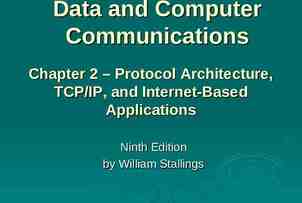Methods of Science Lesson 1 Understanding Science Ms. Amanda
14 Slides858.50 KB
Methods of Science Lesson 1 Understanding Science Ms. Amanda
What is Science? Science – the investigation and exploration of natural events and of the new information that results from those investigations. People use science in their everyday lives and careers.
Branches of Science The world is a big place and there is so much to study. Scientists have developed 3 main branches of Science: Earth Science – study of Earth, including rocks, soils, oceans and the atmosphere. Life Science – study of living things. Physical Science – study of matter and energy.
Scientific Inquiry Scientific Inquiry – a process of steps scientists use to answer questions and test ideas. Step 1: ASK QUESTIONS Make an Observation of the natural world and ask a question. Observation – using one or more of your senses to gather information and taking note of what happens. After you make your observations, you make an inference. Inference – a logical explanation of an observation.
Scientific Inquiry Hypothesize and Predict Hypothesis – a possible explanation for an observation that can be tested by scientific investigations. ‘An educated guess’ Prediction – a statement of what will happen next in a sequence of events.
Scientific Inquiry Test Hypothesis – scientists check to see if their predictions are true. 4 Ways to test a hypothesis: Design an Experiment Make a model Gather and Evaluate Evidence or Research Collect Data/Record Observations
Scientific Inquiry Analyze Results – after you test your hypothesis, you analyze your results. Several ways to do this: Graph results Classify Information Make calculations Other Processes
Scientific Inquiry Draw Conclusions – after you look at the results you can make a conclusion and summarize the information. Communicate Results – scientists share their information. Science Journals Science Conferences Internet
Results of Science What do we learn from these scientific investigations? Technology – practical use of scientific knowledge especially for industrial or commercial use. New materials Possible explanations to why and how things happen
Results of Science Scientists are also able to develop scientific theories and laws. Scientific Theory – an explanation of observations or events that is based on knowledge gained from many observations and investigations. Example: Scientists used to believe that Earth was the center of the solar system. After time, they proved it revolves around the Sun. Scientific Law – a rule that describes a pattern in nature. It tells us what things will do Example: Newton’s laws of gravity.
Evaluating Scientific Evidence Critical Thinking – comparing what you already know with the information you are given in order to decide whether you agree or not. Critical thinking is important for everyday decisions you make in life.
Science Cannot Answer All Questions Science doesn’t answer all the questions you might have about the world. Questions that deal with opinions, beliefs and feelings cannot be answered through scientific investigations. Examples 1. What’s your favorite food? 2. How do you feel about scary movies? 3. Where’s the best place to take a vacation?
Safety in Science It’s very important for scientists to use safety measures when performing investigations. Always follow the teacher’s directions. Ask for help.
Lesson Review Vocabulary 1. 2. 3. 4. 5. 6. 7. 8. 9. science observation inference hypothesis prediction technology scientific theory scientific law critical thinking



















